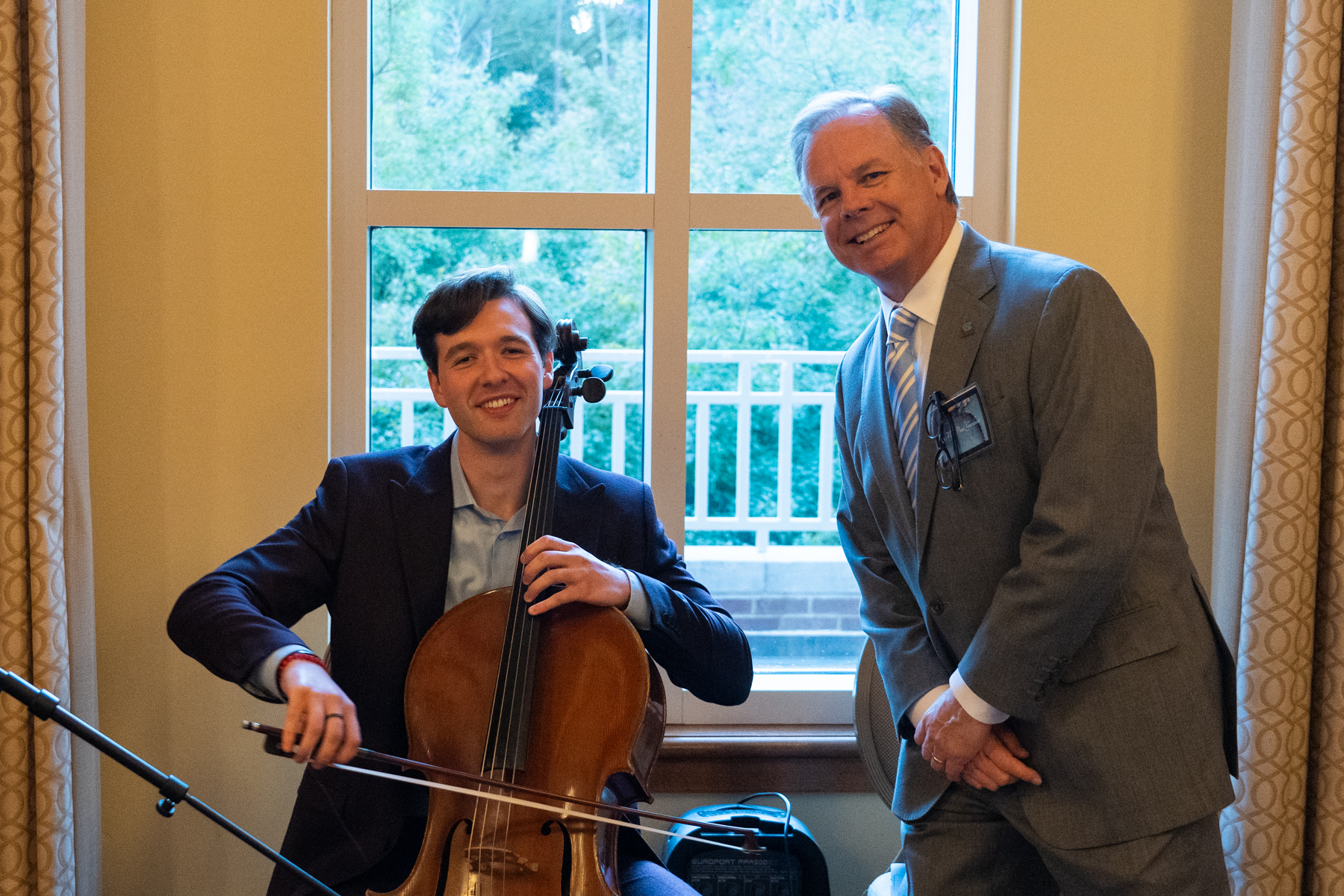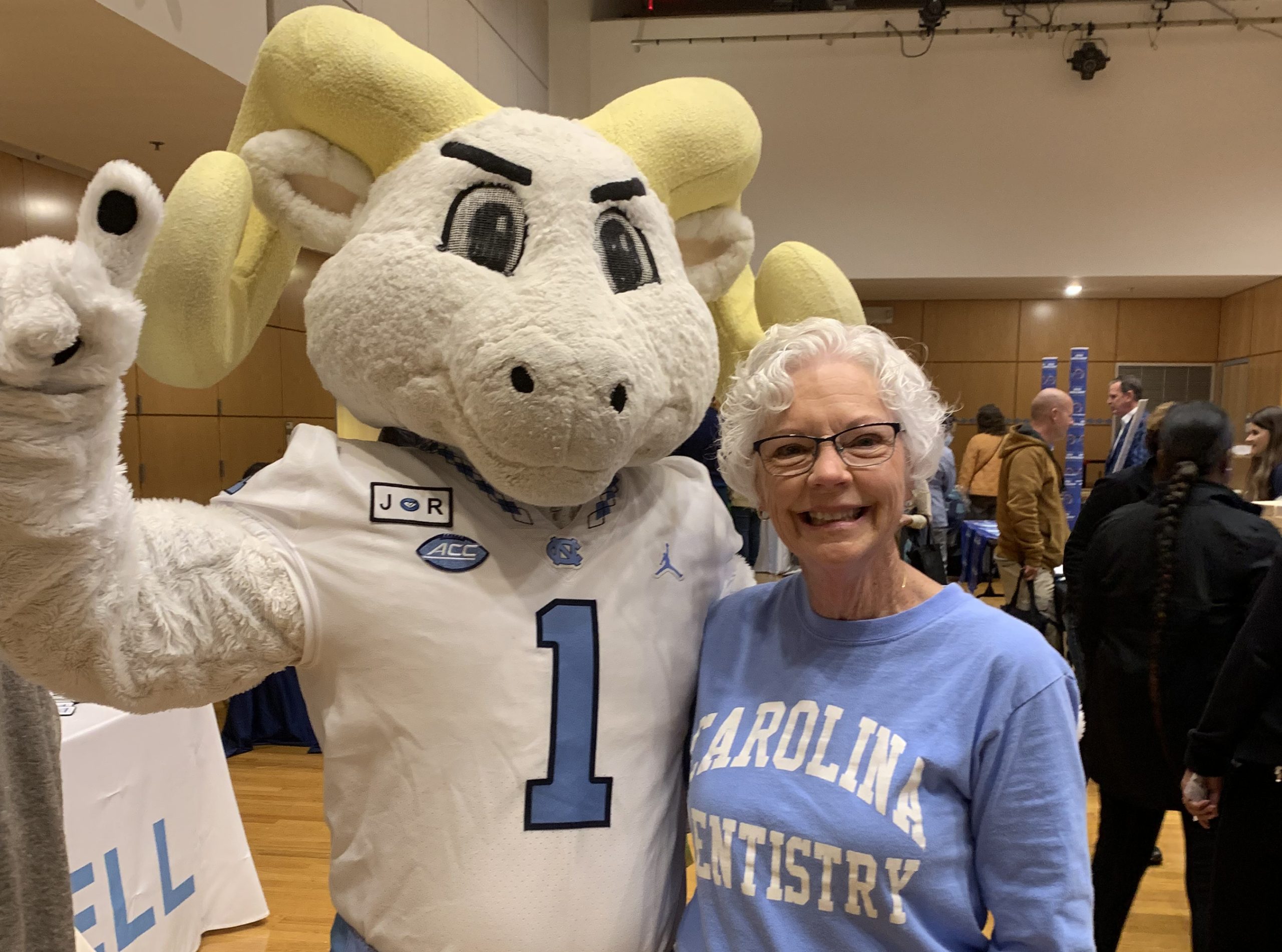Dental Research Grants, Contracts Up 25 Percent in FY 2009
The UNC-Chapel Hill School of Dentistry’s research grants and contracts increased 25 percent – to $13.5 million – in fiscal 2009.
Overall, the University’s research grants and contracts totaled $716 million, the largest amount to date. The contracts and grants come primarily from the federal government, especially the National Institutes of Health (NIH) and the National Science Foundation (NSF). The NIH is traditionally the University’s largest source of research funding.
Chancellor Holden Thorp said the University’s continuing success in attracting outside contract and grant awards for research was a bright spot on the revenue side of the institution’s budget.
“Very few universities are showing these kinds of results for important research that will help improve people’s lives and advance knowledge,” Thorp said. “This success speaks directly to the quality of the research our faculty are conducting. In the current economic downturn, it’s great for North Carolina that our research enterprise is bringing hundreds of millions of dollars into the state.”
School of Dentistry Dean John N. Williams said the School’s faculty members are pursuing creative, patient-centered research with implications for both oral and overall health.
“This success affirms our strategic investments in people and research programs at the School of Dentistry,” he added. “It is also consistent with positioning the School of Dentistry to expand our research mission in the new Dental Sciences Building.”
The Dental Sciences Building, currently projected to be open in early 2012, will feature 216,000 square feet of state-of-the-art educational, research and office and administrative space. Research laboratory and support space will take up about 35 percent of the total square footage.
Carolina faculty had a strong performance in attracting new federal research funding as part of the American Recovery and Reinvestment Act (ARRA), said Dr. Tony Waldrop, vice chancellor for research and economic development at the University. Those results – nearly $20 million through the end of July – make up only a small portion of the fiscal 2009 overall numbers.
School of Dentistry-based ARRA research funding totaled $425,208 through July 27. The researchers receiving this funding are:
- Dr. Eric Everett, associate professor of pediatric dentistry, who was awarded $18,333 for a project titled “Genetic Determinants of Physiological Responses to Fluoride in Bone.” The funding source is the National Institute of Dental and Craniofacial Research (NIDCR), a component of the NIH.
- Dr. Mitsuo Yamauchi, Sunstar distinguished professor of oral biology, who was awarded $221,875 for a project titled “Lysyl Oxidase Control of TGF-b in Bone.” The funding source is the NIDCR.
- Dr. Sompop Bencharit, research assistant professor of prosthodontics, who was awarded $185,000 for a project titled “Role of Programmed Cell Death10 (PDCD10) in p38 MAP Kinase Activation and PDK1 Signaling.” The funding source is the National Heart, Lung, and Blood Institute, a component of the NIH.
“It is important that our awards are funded by a multiple NIH institutes, as well as industry,” said Dr. James D. Beck, associate dean for research at the School. “The Recovery Act awards are especially meaningful in that they were awarded out of a extremely large number of applications for those funds and represent outstanding science, as well as providing a stimulus to our economy.”
Beck said additional School of Dentistry faculty members are investigators for ARRA-funded projects both based in the School and in other University academic units. “Such commitment and collaboration – evidenced with the ARRA and other research grant opportunities – enhance faculty members’ abilities to generate research questions, plan studies and write grants that speak to compelling issues within human health.”
In many cases, researchers from multiple UNC-Chapel Hill schools, departments and units collaborate on research grants, contracts and studies. That approach reflects the University’s emphasis on interdisciplinary teaching and scholarship among the health, natural and social sciences, as well as the liberal arts and the humanities.
Overall research funding from other top-performing main University units in fiscal 2009 include:
- Gillings School of Global Public Health: up 54 percent to $97 million.
- School of Information and Library Science: up 572 percent to $7.7 million.
- Eshelman School of Pharmacy: up 22 percent to $20.2 million.
- Vice Chancellor for Research and Economic Development: up 8 percent to $133.7 million.
The School of Medicine received the largest proportion of such funding, at $349.6 million, or 48.8 percent of the University’s total.
-
- UNC News Services contributed to this article


